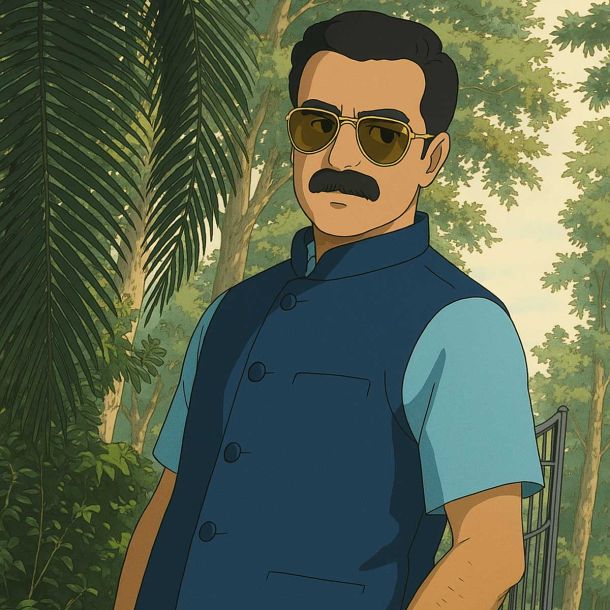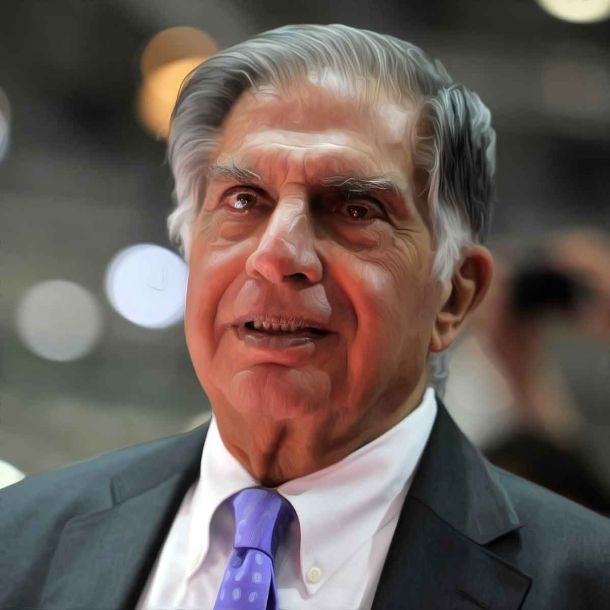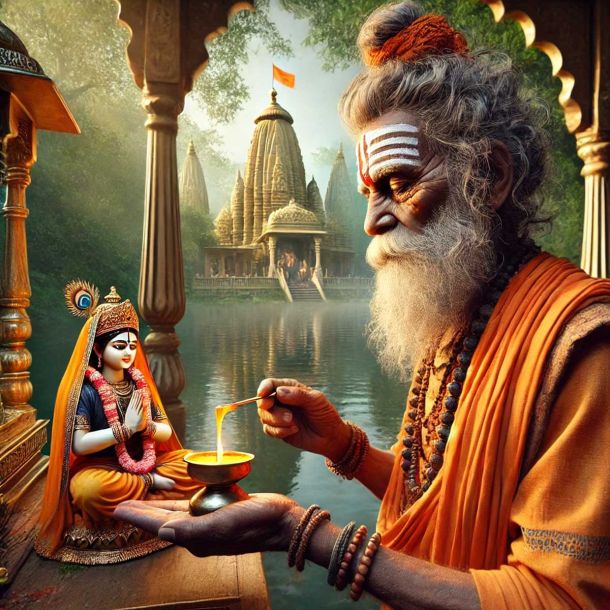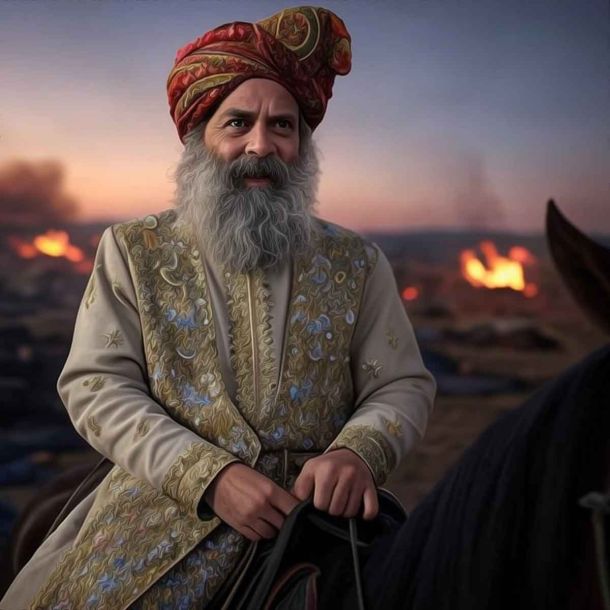More Coverage
Twitter Coverage
Satyaagrah
Written on
Satyaagrah
Written on
Satyaagrah
Written on
Satyaagrah
Written on
Satyaagrah
Written on
Join Satyaagrah Social Media
"In the face of war and loss, Sehmat embodied courage and sacrifice": Discover the heart-wrenching journey of love and duty that unfolds in the midst of the 1971 Indo-Pak conflict, as depicted in "Calling Sehmat", a true heroine's tale by Harinder Sikka

In the world of espionage and nationalism, where valiant stories often remain unsung, there arises a tale that resonates with courage, sacrifice, and a profound sense of duty. It all commenced on the Kargil battlefield in 1999 where Harinder Sikka, the remarkable author of "Calling Sehmat", stumbled upon a story that would soon be immortalized both in ink and on the silver screen.
During a conversation with News18.com, Sikka shared the exhilarating journey of how a fiery discussion on the Kargil battlefield paved the way to the discovery of an awe-inspiring tale, a story that celebrates an unsung hero from the Kashmir valley - Sehmat. The recent film, "Raazi", starring Alia Bhatt, brings this tale to the masses, and paints the silver screen with hues of bravery and unparalleled patriotism. But the journey from the battlefield to the big screen was nothing short of a riveting saga itself.
At a time when Sikka was nurturing the desire to narrate the harrowing experiences of soldiers, a fierce argument ignited a spark that would later illuminate Sehmat's story. Fueled by anger and frustration at what he perceived as the failing of the intelligentsia, Sikka labeled them as traitors, a statement that was met with resistance from an officer who vehemently defended his mother, referring to her as Sehmat, a beacon of loyalty and patriotism.
This heated exchange lingered in Sikka's mind, resurfacing years later, urging him to unravel the truth behind the officer's claim. What followed was an intense period of meticulous research and perseverance, a journey that spanned across borders, venturing into the very heart of Pakistan, the nucleus of the espionage activities that Sehmat was intricately involved in. Sikka's dedication to unveiling the truth saw him embark on not one, but two expeditions to Pakistan, piecing together fragments of a past that echoed with acts of courage and valiant sacrifices.
|
"I changed her name to protect her identity," Sikka shares, underlining the gravity of the mission Sehmat undertook and the lives that intertwined in this gripping narrative. What emerged was not just a story, but a vibrant tapestry of heroism that spanned across the tumultuous times during the war of 1971.
This exploration culminated in a brilliant narrative that encapsulated the essence of patriotism, a story that was initially met with rejection by the revered Gulzar Sahab. However, destiny had other plans, as his daughter, the talented Meghna Gulzar, saw the potential in Sikka's labor of love, deciding to adapt this stirring narrative into what would become the critically acclaimed film, "Raazi".
In this compelling journey from the rugged terrains of Kargil to the cinematic panorama, "Calling Sehmat" stands as a testament to the undying spirit of patriotism, a narrative that celebrates an unsung hero, and a story that reminds us that heroes dwell in the most unsuspecting places, silently weaving narratives of courage and nationalism.
In Sikka's own journey, a spirited argument transformed into a voyage of discovery, bringing to light a tale that kindles a fervent sense of pride and admiration in the hearts of millions, showcasing the true essence of bravery, sacrifice, and the undying love for one's nation.
In the riveting journey of bringing Sehmat's story to light, Harinder Sikka transformed facts into an evocative fiction that transcends borders and tugs at the heartstrings of readers and audiences alike. In a recent interaction, Sikka unraveled the meticulous process that went into crafting this heart-stirring narrative.
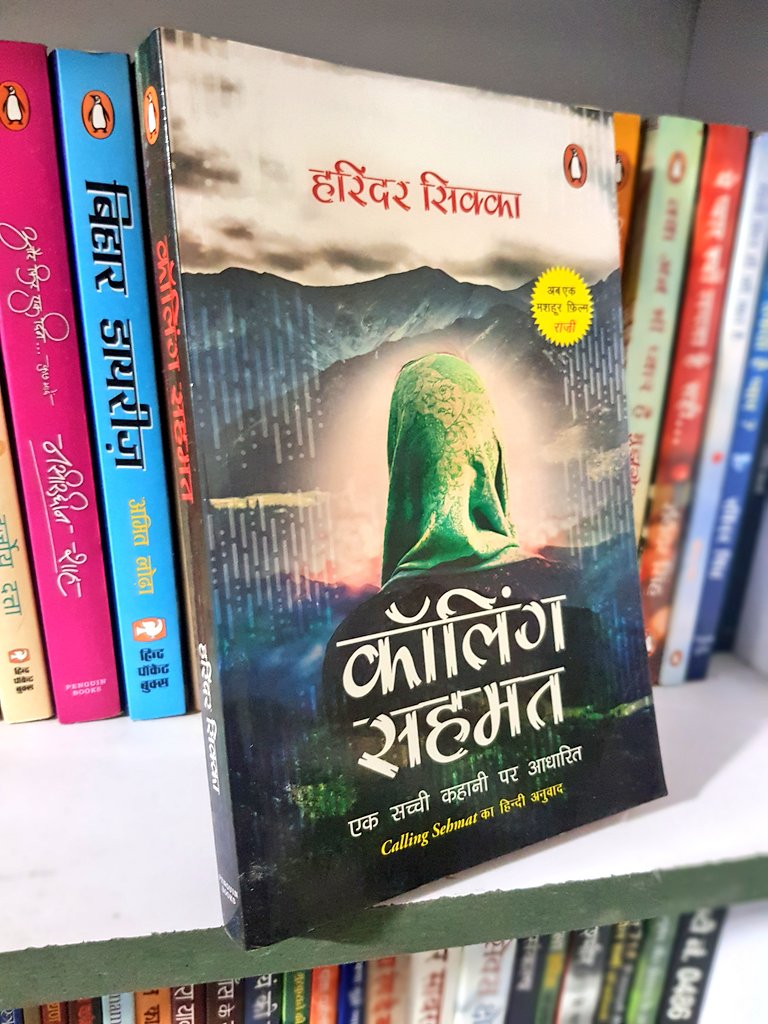 |
With an air of solemnity, Sikka recounted his visit to Farooq Abdullah, a prominent figure in Indian politics at the time. Handing him the manuscript, Sikka found himself adopting Abdullah’s insightful advice to alter the names and identities within the narrative. "It appeared that he knew the families I had written about," Sikka noted, emphasizing the gravity of the responsibility he held in presenting this narrative to the world. Thus began a painstaking process of reshaping the manuscript, ensuring the essence of Sehmat’s tale remained untarnished while safeguarding the identities of those involved.
The title, 'Calling Sehmat', emerged as a poetic embodiment of the unspoken pact Sikka shared with Sehmat, a pact steeped in humility and a shared understanding of the selfless nature of her contributions to her nation. 'Sehmat' - denoting 'agreement' - encapsulated the ethos of a woman who wished to remain in the shadows, her heroic deeds echoing in the annals of history, yet her identity shrouded in mystery. This spirit of selfless duty resonated deeply with Sikka, inspiring him to adopt Sehmat’s heartfelt blessing as a personal motto: "Khuda apko farz se nawaazein" (May the almighty reward you with duties).
The first edition of 'Calling Sehmat' graced the literary world in 2008, with a momentous launch graced by Sikka's mother and facilitated by Francis Mallory, the then South African High Commissioner to India. As the narrative blossomed, Sikka felt compelled to enrich the narrative further, adding depth and nuances that would accentuate Sehmat’s journey even more vividly. The second edition saw a grand release onboard INS Vikrant, India's maiden naval aircraft carrier, a moment made even more poignant by Admiral Sureesh Mehta, the then Chief of the Naval Staff, who honored the narrative with his presence. This re-release not only marked a significant milestone in the book's journey but also paid homage to the instrumental role played by agents like Sehmat in safeguarding vital assets like the INS Vikrant during the 1971 war.
|
An integral part of this literary journey was Sehmat's poetry, a beautiful yet poignant reflection of her soul, which Sikka translated with utmost care, preserving the sanctity of her words while protecting her anonymity.
Transitioning from the pages of the book to the cinematic canvas was a journey imbued with reverence and a sense of duty. While Sikka harbored desires to immortalize Sehmat's tale through cinema, Sehmat herself urged him to direct his energies towards a project dedicated to Guru Nanak, reflecting her transformed perspective on life and spirituality, molded by the traumatic experiences she endured as a spy in Pakistan and the subsequent healing under the guidance of a saintly figure upon her return to India.
Honoring her wishes, Sikka ventured into the world of filmmaking with 'Nanak Shah Fakir', a tribute to Guru Nanak that resonated profoundly with audiences, garnering three National Awards, including the prestigious Nargis Dutt Award for Best Feature Film on National Integration.
In the world of literature and cinema, there are tales that transcend time and remain etched in the hearts of readers and audiences alike. "Calling Sehmat" is one such narrative that encapsulated the unyielding spirit of nationalism, stirring emotions of pride and reverence among those who encountered Sehmat's journey. Transforming this book into the successful film "Raazi" was an endeavor that Harinder Sikka embraced with grace and unflinching dedication.
Sikka's role in this metamorphosis was not just as a guiding force but also as a passionate collaborator who believed in the authenticity of Meghna Gulzar's vision. As he navigated through extensive discussions with Meghna, Sikka found himself entrenched in a whirlpool of questions, ten million perhaps, reflecting Meghna's deep-seated desire to unravel every nuance of Sehmat's character and the world she inhabited.
In this collaborative journey, Sikka extended complete trust towards Meghna, promising her the director's chair in written commitment, irrespective of who would produce the film. "I was very sure, she would be the right person," Sikka recollected, emphasizing the seamless harmony between his vision and Meghna's directorial acumen. Despite earlier rejections from Gulzar Sahab, Sikka's unwavering faith in Meghna paved the way for a cinematic experience that would not only encapsulate the essence of the book but also pay a fitting tribute to the remarkable life of Sehmat.
The journey, however, wasn't devoid of hurdles. Spanning eight long years, it required Sikka to traverse perilous paths, to undertake risks that mirrored the gravity of the tale he was penning down. Yet, the cinematic rendition only embraced a fragment of the extensive narrative crafted in "Calling Sehmat". It was Meghna's discerning eye that carefully selected elements that would resonate with audiences, weaving a tapestry of emotions, courage, and nationalism, all the while respecting Sikka's minor suggestions and corrections.
At the core of this journey lay Sehmat's guiding principle, a message that resonated profoundly with Sikka. A message that not only underscored the altruistic spirit that Sehmat embodied but also established the path that Sikka would tread in honoring her memory. Sehmat was categorical in her request, urging Sikka to channel the revenues generated from the book and the movie towards charitable endeavors, a request that Sikka embraced with an open heart.
In following this directive, Sikka transformed into a beacon of hope for many. The revenues nurtured dreams and aspirations, supporting children in Telangana who had faced the tragedy of losing their parents to farmers' suicides. It paved the way for young talents like Gyannandini, a budding mountaineer from Chondosi village, to scale new heights. It breathed life into foundations like the one spearheaded by Bibi Prakash Kaur, fostering a nurturing environment for girls who had faced abandonment at birth.
As Sikka reflects on this remarkable journey, he perceives Sehmat not merely as a protagonist in his book but as an angel guiding his actions, a benevolent force urging him to foster hope and change in society. In heeding her words, Sikka has embodied a living testament to her legacy, honoring her wishes with reverence and devotion, truly making her wish his command. Through this process, Sehmat's spirit lives on, nurturing dreams and fostering unity, truly encapsulating the essence of an angel walking among us. Stay tuned, as we continue to unravel this incredible journey of courage, sacrifice, and unparalleled nationalism.
|
The bit from ‘Calling Sehmat’ that’s not there in ‘Raazi’: The Kashmiri spy’s first love
Meghna Gulzar's movie "Raazi" draws inspiration from Harinder Sikka's 2008 book, "Calling Sehmat". This riveting tale unfolds the life of Sehmat, a Kashmiri woman who steps into the perilous domain of espionage by marrying a Pakistani brigadier's son, all to serve the Indian government. The backdrop of the story is the tense environment preceding the Indo-Pak war of 1971, vividly portraying Sehmat’s vital contributions to India's intelligence operations that played a significant role in India's victory. The protagonist embraces this risky venture, a mantle passed down to her by her father, businessman Hidayat Khan. Bringing this engrossing narrative to the big screen, the film, which premiered on May 11, features the talented Alia Bhatt as Sehmat.
Now, let's delve into a lesser-known chapter of Sehmat's life, an episode of youthful romance and dreams unfulfilled.
Abhinav, Sehmat’s first love Sehmat, a woman of ethereal beauty, never failed to captivate those who beheld her. With a complexion reminiscent of the delicate blend of peaches and cream and sharp, distinct features typical of Kashmiri lineage, she was nothing short of mesmerizing. Her graceful demeanor made her movements seem almost surreal, as if she floated rather than walked, fostering an aura of someone not from this mundane world.
Contrary to the speculations swirling around her, Sehmat wasn't engaged in any romantic relationship. Her inner circle was well aware that she didn't entertain any friendships with men. Having witnessed the pure and sacred bond shared by her parents, Sehmat harbored a deep-seated belief in the existence of true love. She eagerly anticipated the day this sanctified form of love would grace her life, a day when a man embodying love, strength, and profound understanding would walk into her life, ushering her into a blissful sanctuary of love and companionship.
In her nightly reveries, Sehmat would often encounter the man of her dreams, a beacon of love and strength, ready to elevate her life to a paradisiacal existence. These dreams nurtured in her an expectation of a romance that would transcend the ordinary, offering a slice of heaven here on earth.
However, life had other plans for Sehmat, plans that would see her youthful dreams encounter the harsh realities of life. During the festive season of annual college celebrations, fate orchestrated a meeting between Sehmat and Abhinav, marking the beginning of a tender yet poignant chapter in her life. This period saw the blossoming of a love that promised dreams realized and a future filled with love and happiness, a love that seemed destined to fulfill Sehmat's long-cherished dreams. Little did she know that this budding romance would soon be tested by the relentless march of destiny, weaving a complex tale of love, duty, and sacrifice.
|
Abhinav, affectionately known as Aby to those in his inner circle, hailed from a prosperous and powerful family in Delhi. His stature was tall and commanding, exhibiting an athleticism that echoed the vibrant heroes depicted in romantic novels. He was the cynosure of all eyes, with women continually vying for his attention, though none succeeded. While his striking good looks were undeniably a magnet, his substantial family wealth added another layer of allure. Despite the admiration and allure that surrounded him, Aby remained a solitary figure, preferring the quietude of the classroom's last bench to the fervent advances that beckoned him.
Unbeknownst to others, Aby used his time in the classroom to pen poetic verses, a secret outlet to channel the surging emotions within him. The subject of his poetic affection was none other than the mesmerizing Sehmat, a woman who seemed both within reach yet tantalizingly distant. Aby viewed her as a Kashmiri princess who had somehow found herself in unfamiliar surroundings, losing a part of herself amidst the city's bustling vibes. His feelings for her grew with time, blossoming into a deep, silent love, a love that, sadly, remained unexpressed. Instead, he chose to confide his burgeoning affection in the verses he penned, an anthology of love and admiration that grew with each passing day, tracing his silent journey of love.
As time rolled on, the connection between Sehmat and Aby intensified, giving birth to a blossoming romance that seemed to fill their days with joy and expectation. Their companionship became a staple sight, a testament to their growing affection, which seemed inseparable, save for the hours spent in the classroom. There, Sehmat found herself caught in a battle of concentration, striving to focus on her academic pursuits amidst the overwhelming presence of love.
But amidst this budding romance, a sense of duty and allegiance to her country began to permeate Sehmat's conscience. It was a call that couldn't be ignored, a duty that transcended personal desires, even those as profound as love. It was a path that promised no return, a decision that required her to place the well-being of her nation over the desires of her heart. As the days went by, the gravity of her responsibility began to cast a shadow on the blossoming love, posing an inevitable question - could love truly conquer all, or would duty stand as the insurmountable barrier, dictating the paths that both Sehmat and Aby had to tread? A moment of decision approached, a crossroads where love and duty would collide, forcing Sehmat to make a choice that could alter the course of their lives forever.
The blossoming relationship between Sehmat and Aby continued to flourish even as the annual examination period cast its stressful shadow over the college. Aby vowed to scrutinize her notes diligently, but found himself unable to divert his focus from the looming summer break that threatened to create a chasm between him and his beloved.
Deep inside, a nagging apprehension clung to him, perhaps an unspoken premonition of the turmoil that was on the horizon for them.
On the day they faced their final exam, Sehmat had scarcely exited the examination hall when an unfamiliar figure approached her. This stranger extended a sealed envelope to her, introducing himself in a brief manner. Initially assuming it to be another of Aby's playful antics, her face lost its color as she noticed the sender's name inscribed at the bottom of the envelope. A sudden rush of apprehension saw her hastily unsealing the envelope, absorbing the brief message within. A summon from Mir, urging her to return to Srinagar promptly, accompanied by an airline ticket for a flight destined for the following day.
A knot of worry tightened in Sehmat's stomach, an unyielding sense that her family was engulfed in crisis. Not long after, she found herself seated in the principal's office, the voice of her mother echoing through the phone receiver. Beside her, Aby remained, a pillar of quiet strength though his face betrayed signs of distress. Tej, her mother, made valiant attempts to shield Sehmat from the ominous undertones of their conversation, but the cracks in her façade were evident. Aby, though helpless, remained steadfast, his presence a silent attempt to infuse some joy into her rapidly dimming spirit.
Once ensconced in the familiar surroundings of her home, the reality of her family's predicament began to unfold before Sehmat. The grim news of her father's deteriorating health broke like a storm within her, leading to hours of inconsolable grief as she grappled with the prospect of losing him. Throughout this emotional tempest, her mother stood as a beacon of understanding, sharing whispered conversations that stretched into the small hours. In the sanctuary of their shared sorrow, Sehmat revealed her blossoming relationship with Aby, finding comfort in their mutual tears.
As they conversed, Tej hesitantly broached a subject that carried the weight of an immense responsibility. Despite her trepidation, she detailed the possibility of Sehmat stepping into a role deeply entrenched in the world of espionage, becoming a cog in the intelligence network spanning across the border. A heavy conversation, laden with dread yet tinged with a sense of duty, where the unthinkable began to morph into a looming reality.
'The path that lies ahead demands a sacrifice, and sadly, it involves Aby,' Tej conveyed with a grave yet resolute expression. 'Your father has dedicated years, risking his life time and again, in service to our nation. His wish is for you to carry the mantle now, to be a vital asset in monitoring the increasing hubris of the Pakistani Generals. We have a long-standing acquaintance with the Sayeeds. Iqbal is a young man of good repute, cultured and well-educated. With him, you will find safety and contentment,' she assured. A daring strategy was unfolding, where Sehmat was to marry Iqbal, the offspring of Pakistani Brigadier Sheikh Sayeed, a significant chess move that would facilitate vital insights into operations plotting against India.
The impending loss of her father coupled with the inevitable separation from Aby struck Sehmat with a force that brought her to her knees. Alone in her chamber, her cries pierced the silence as she directed her pleas and accusations towards the heavens. The prospect of this test of loyalty and patriotism seemed too high a price to pay, a trade-off that demanded she sever her ties with her family and the man she loved, a bargain she was reluctant to accept.
Lost in a maelstrom of rage and despondency, Sehmat found herself grappling with questions that seemed to defy answers. The somber night echoed her turmoil, enveloping her in a cloak of darkness that seemed to foretell the storm that was on the horizon. It felt as though the universe itself was signaling the advent of a tumultuous period, a foreboding resonance that filled the silence. A torrent of thoughts surged within her, her mind constantly drifting towards Aby, who awaited her return unknowingly. The burden of the choices before her threatened to crush her spirit. A fierce resentment built up within her, a fiery protest against the hand fate had dealt her. Caught in a crucible of duty and love, she felt torn between her obligation to her father and her burgeoning love for Aby. A precipice where there seemed to be no room for compromise, where the paths seemed destined to veer away, leaving her at a crossroads that promised no easy resolutions.
 Support Us
Support Us
Satyagraha was born from the heart of our land, with an undying aim to unveil the true essence of Bharat. It seeks to illuminate the hidden tales of our valiant freedom fighters and the rich chronicles that haven't yet sung their complete melody in the mainstream.
While platforms like NDTV and 'The Wire' effortlessly garner funds under the banner of safeguarding democracy, we at Satyagraha walk a different path. Our strength and resonance come from you. In this journey to weave a stronger Bharat, every little contribution amplifies our voice. Let's come together, contribute as you can, and champion the true spirit of our nation.
 |  |  |
| ICICI Bank of Satyaagrah | Razorpay Bank of Satyaagrah | PayPal Bank of Satyaagrah - For International Payments |
If all above doesn't work, then try the LINK below:
Please share the article on other platforms
DISCLAIMER: The author is solely responsible for the views expressed in this article. The author carries the responsibility for citing and/or licensing of images utilized within the text. The website also frequently uses non-commercial images for representational purposes only in line with the article. We are not responsible for the authenticity of such images. If some images have a copyright issue, we request the person/entity to contact us at This email address is being protected from spambots. You need JavaScript enabled to view it. and we will take the necessary actions to resolve the issue.
Related Articles
- "Civil hired vehicle" carrying Army Jawans explodes, two injured and Army Jawan Praveen Singh made the supreme sacrifice: Pakistan’s proxy war successfully continues to bleed us and keep Kashmir destabilized, signs of internal sabotage?
- Operation Polo: When India annexed Hyderabad from the Nizam and Razakars, the suppression of Hindus and the role of Nehru
- ‘Jagdamba ki Jai Ho' words spoken by a wounded yet determined 2nd Lt Arun Khetrapal during 1971 Bharat-Pakistan war when he went on to destroy 10 Pakistani battle tanks: Youngest Param Vir Chakra Winner became eternal at 21
- "Saddest thing about betrayal is that it never comes from your enemies": J&K Govt terminated Dr Bilal Ahmad Dalal and Dr Nighat Shaheen Chilloo for working with Pakistan to falsify post-mortem report of Asiya and Neelofar to falsely implicate Indian Army
- Manmohan Singh govt was ready to demilitarise the Siachen glacier and cede the control to Pakistan under the pressure of Americans, wanted to call it ‘Mountain of Peace’: Former Chief of Army Staff General JJ Singh
- Indian Army pacing towards self-reliance under 'Atmanirbhar Bharat Abhiyaan’ campaign: Indigenisation of defence manufacturing is helping to build a new and strong India to keep neighbour aggression in check
- India successfully carried out the test firing of a new missile of the Agni series known as Agni-Prime
- Let's see what Sam Manekshaw said when Karan Thapar tried to undermine India’s win in 1971
- Chinese propaganda campaign video is busted by Indian Army, shares pictures of Indian Jawans unfurling Tricolour at Galwan Valley
- If only India’s partition chilling wound was not enough, Gandhi did his last protest again only to blackmail India into giving 55 crores to Pakistan, dragged Hindu, Sikh refugees seeking shelter in mosques to die in cold: And we call him Mahatma, not for
- Rare footage of Pakistan Army surrendering to Indian Armed Forces after the humiliating defeat in 1971 war: Vijay Diwas
- "It is impossible to correct abuses unless we know that they’re going on": Arabela Urpi, famous American Vlogger gang raped by her Hosts Muzmal Sipra and Shehzad in Pakistan, people knowing the matter said – ‘Women are not safe in this country’
- "Tum mujhey Geography do, main tumhe Demography dunga": Paki Minister of Health encouraging Pakis to migrate to non-Muslim lands, procreate to their heart’s content, demographically conquering, little by little, these countries & their indigenous Infidels
- "जानता है रे मेरा बाप कौन है": Natasha Danish Iqbal's chilling smile after a deadly crash in Karachi kills a father and daughter, injuring others; her and CEO husband Danish Iqbal's pre-arrest bails expose power dynamics and stir public demand for justice
- Past unfolding: Hindu holy city of Dwarka was targeted by Pakistan in 1965 with an aim to destroy it
